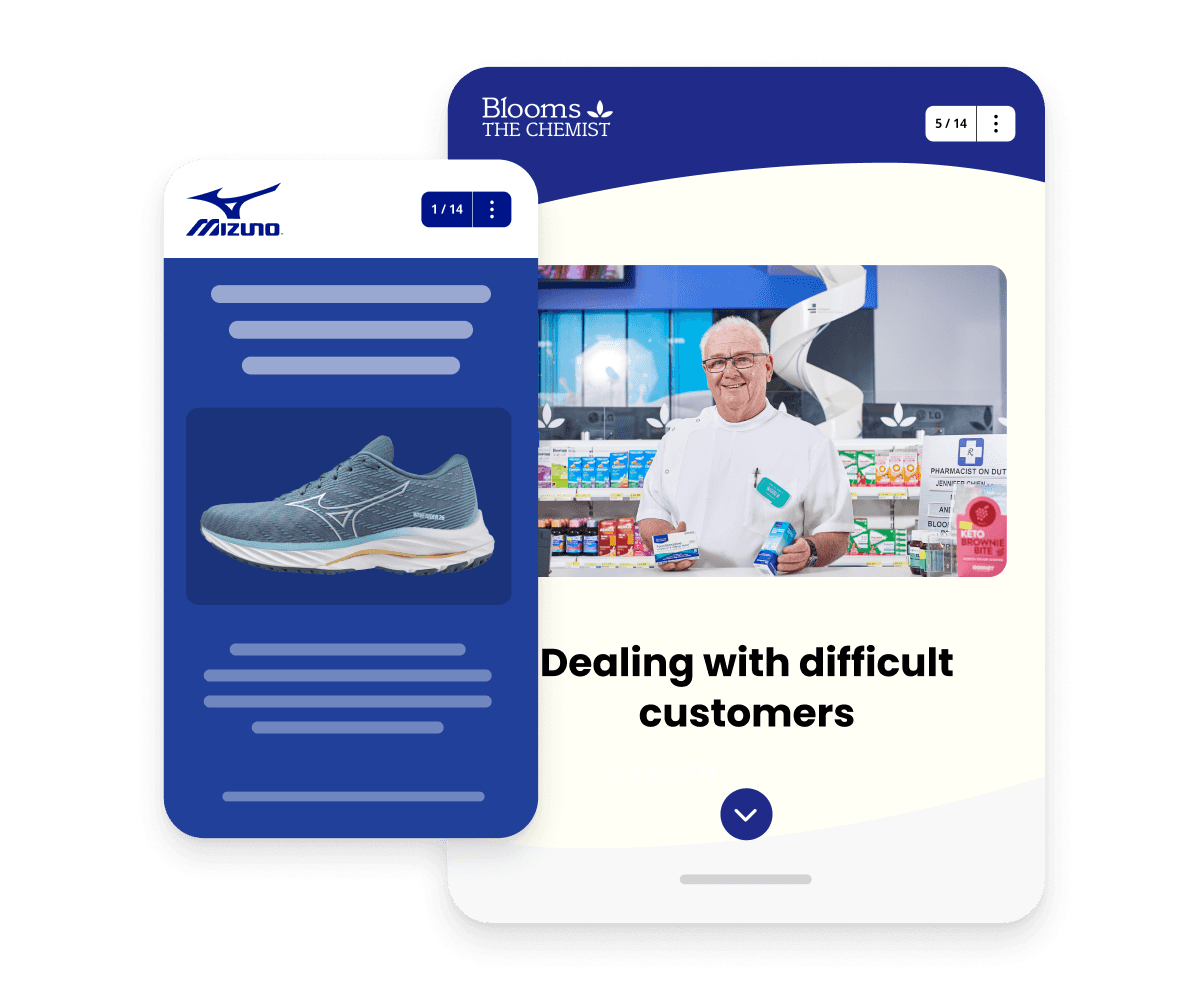Using paper checklists, no one could see results of audits or the risks associated with poor processes. SafetyCulture allows us to see the results immediately and identify where we need to focus.
SafetyCulture has helped businesses around the world achieve
50%
improved efficiency in training*
60%
increased audit efficiency*
49%
savings from safety & compliance improvements*
*Reported in Forrester’s study: The Total Economic Impact™ of SafetyCulture’s Operations Platform

Deliver a consistent customer experience
Equip your teams with the tools and knowledge to deliver a great customer experience consistently. By streamlining processes and conducting timely retail audits, you and your teams can address problems faster, maintain high standards, and drive an efficient shopfloor, ultimately leading to happier customers.
Maintain brand standards
Deliver a great retail experience consistently by streamlining processes across all branches. Digitize brand standard assessments and training courses to communicate changes to operating procedures, visual merchandising, promotions, and more.
Getting SafetyCulture platform out to 760+ shops, with so many employees was surprisingly easy. It’s not often you get that in a rollout of this magnitude. We rolled it out in a matter of weeks.


Establish workflows based on store needs
Prevent bottlenecks and keep operations running smoothly across all locations. Enable local customization while maintaining corporate oversight, allowing stores to adapt workflows to their unique needs. Automate routine processes and ensure seamless task execution by creating workflows that trigger follow-up actions once a task is completed.
Enable real-time reporting and collaboration
Keep everyone aligned, improve operational efficiency, and drive faster task completion. Ensure staff always work on relevant assignments, and facilitate seamless collaboration between teams and locations to prevent miscommunication and duplicated efforts. Enable live updates and instant notifications to control task alignment and boost workforce productivity.


Centralize task allocation in one dashboard
Improve accountability and streamline task execution for improved efficiency. Manage all task assignments in a single platform connecting all staff across all levels. Automatically assign tasks based on predefined priorities, employee availability, and store-specific needs. Reduce confusion and manual tracking with a structured view of all ongoing and upcoming tasks.
Drive improvement across your stores
Explore customizable solutions ready to meet your business needs
EHS
Health & Safety Management
Keep teams safe on the job while promoting a safety culture across your organization.
GRC
Risk & Compliance
Identify, evaluate and mitigate risks to your teams and assets through greater visibility and a data-driven approach.
Quality
Operational Excellence
Optimize processes and drive productivity, greater efficiencies and quality products or services at scale.
ESG
Environment & Sustainability
Digitize SOP’s, reduce waste and adapt sustainability best practices the moment conditions change.
Explore retail resources & solutions
Template
Retail Store Daily Checklist Template
Conduct a complete assessment of your retail store’s daily operations with a digital checklist.
Template
Store Operations Checklist
Optimize store operations for efficiency and profitability with a digital checklist.
Template
Employee Evaluation Forms
Save time and effort with ease of recordkeeping and streamlined employee evaluations for improved task execution and management.
Article
Retail Management
Learn about the basics of retail management, the skills of retail managers, and how retailers can optimize operations with best practices.
Article
Resource Management
Learn how effective planning, allocation, and optimization of resources can lead to unparalleled organizational efficiency.
Article
Human Resource Management
Everything you need to know about human resource management.




